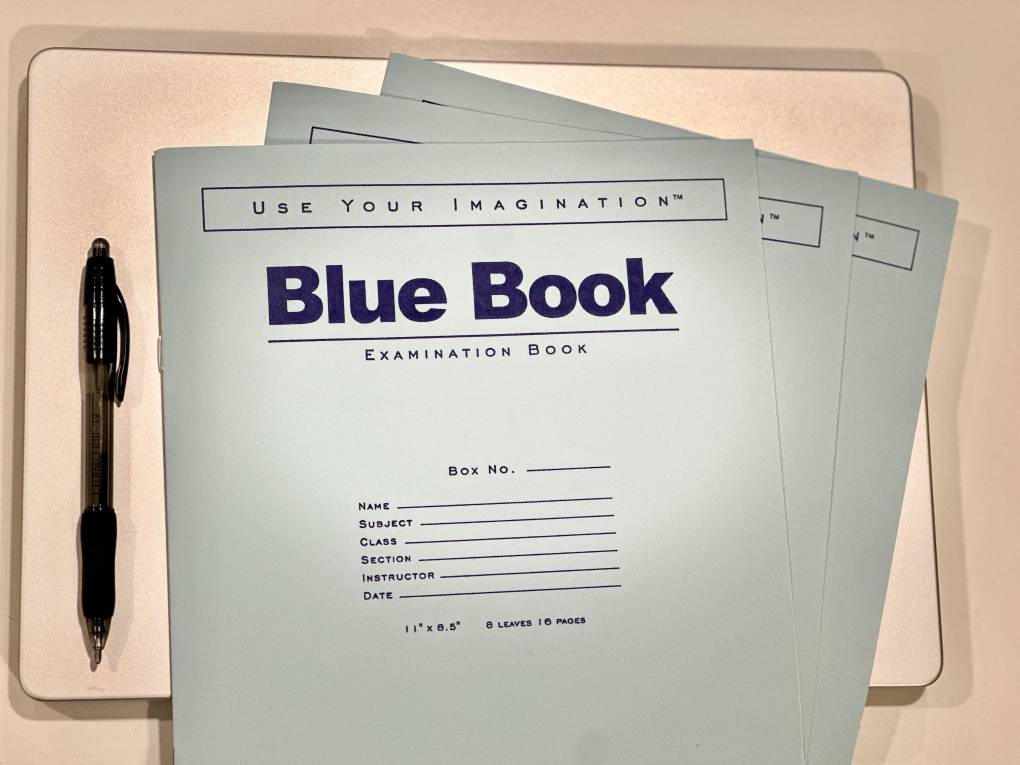When writing by hand, visual motor systems in the brain that support reading are more active, said Sophia Vinci-Booher, an assistant professor of educational neuroscience at Vanderbilt University. Vinci-Booher has also found that handwriting increases letter recognition more than typing does.
Generally, when note-taking and testing modes align, a student is more likely to perform better than when the modes don’t align, said Vinci-Booher. For example, if exam answers are required to be handwritten, a student who also writes their notes by hand will be more likely to do better on the exam than if that same student were to type their answers.
This school year, Coupet learned that the overwhelming majority of his students had never taken a hand written exam in college. When he brought out the blue books for the first exam of the 2024-25 school year, he had to give detailed instructions about blue book standards, like where to write your name.
Coupet noticed an immediate difference in test results.
The students who didn’t come to class often showed their lack of preparation in their exam answers, and Coupet noticed more variation in these students’ answers. Students who weren’t prepared for the exam also struggled to apply reason to their answers—an important skill to master for future policy makers, he said. Previously, these struggles were masked by use of tech and what students actually didn’t know was obscured.
For now, Coupet will stick with blue book exams because it fits within his pedagogical style.
Grading in Blue Book
Alexandra Garrett, an assistant professor of history at St Michael’s College, has never known anything different. She joined the faculty at St. Michael’s College during the 2022-2023 school year, and has only taught in-person classes. All three exams in her course on early American history are done in a blue book.
Although Garrett sees a lot of spelling errors in written exams, she doesn’t factor grammatical inconsistencies into a student’s final score. She does expect students to give thorough and content driven exam answers.
While some educators might wonder about reading handwriting, Garrett said that she’s only had to ask students to read their answers out loud, due to illegible handwriting, twice in her career.
Administering blue book exams doesn’t seem to be as popular of a choice these days though. According to Garrett, some more experienced professors at her university have expressed surprise when she says that she’s ditched digital exams. But persistent plagiarism and unauthorized use of ChatGPT in student essays, have deterred Garrett from digital exams, and she doesn’t see herself moving away from blue books any time soon.
“I’ve never not done blue books for exams and I have no incentive to change it,” said Garrett.

